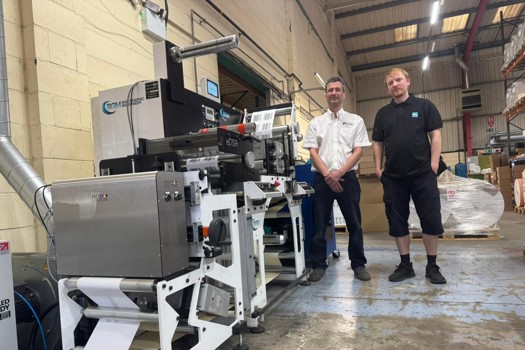In its full-year results for the 52-week period ended March 2022, the postal operator achieved revenue of £12.71bn, up 0.6% on the £12.64bn it achieved a year earlier. This included sales from its overseas parcels business GLS.
On a reported basis, the company recorded a pre-tax profit of £662m, down 8.8% on last year, and an operating profit of £577m, down 5.6%.
Its adjusted operating profit was up 8% at £758m while its adjusted pre-tax profit figure was up 6.5% at £707m.
The business said that while the pandemic had resulted in an increase in parcel volumes, some of the tailwinds it experienced in the last year have subsided, and while it has seen a recovery in letter volumes, “parcel volumes and shifts in mix continue to be volatile”.
Addressed letter volumes, excluding elections, were up 3%, partially recovering the significant decline in the prior year, but were down 18% compared to pre-pandemic. Advertising mail saw volumes up 30% year-on-year while business mail volumes experienced a 1% drop due to continued e-substitution of more transactional mailings and tougher prior year comparators as the year progressed.
Revenue at the group’s Royal Mail business fell by 1.6% year-on-year to £8.51bn, which was said to reflect changing consumer behaviour following the removal of lockdown restrictions and lower international volumes, partially offset by growth in test kits. GLS revenue, meanwhile, increased by 4.4% year-on-year in sterling terms to £4.22bn, driven by recovery in B2B volumes and freight.
Royal Mail non-executive chair Keith Williams said: “Whilst a difficult environment persisted over the last year, with operational challenges caused by Omicron and tight labour markets, we continued to see financial tailwinds from the pandemic, which are now dissipating. We also have clear headwinds as we enter 2022-23, such as weakening GDP and growing inflationary pressures. Whilst both GLS and Royal Mail face short-term challenges, they also have longer term opportunities.
“We are at a crossroads with the transformation of Royal Mail. We need to adapt our business to a post-pandemic world and whilst we are making progress in some areas, more needs to be done in others. We need to accelerate and broaden the scope of change to meet the demands of our customers, deliver real efficiency savings with a financial benefit this year and beyond, and remain competitive to support sustainable growth and secure jobs for the future.
“In GLS, we made good progress on our Accelerate strategy and we need to continue to harness growth opportunities in a profitable way. We are making good progress in France and Canada, but seeing margin pressure in the US. We are taking actions to address short-term challenges, including price increases and accelerating efficiency opportunities, while still investing for the future. GLS can leverage its business model to become more global, digital and diverse.”
Chief executive Simon Thompson added that 50% of the company’s parcels are now processed automatically, the delivery of two new parcel hubs are on track, and the business is reinventing its services and digital experiences “to make sending and receiving even easier in an online age”.
“But as we emerge from the pandemic, the need to accelerate the transformation of our business – particularly in delivery – has become more urgent,” he said.
“Our future is as a parcels business, so we need to adapt old ways of working designed for letters and do it much more quickly to a world increasingly dominated by parcels.
“The last two years has shown us all how quickly customer needs can change. Our focus now is to work at pace with our people and our trade unions to reinvent this British icon for the next generations, so that we can give our customers what they want, grow our business sustainably and deliver long-term job security for our great team. We have no time to waste.”
The group said it had identified cost-savings “in excess of £350m” to mitigate macro-economic pressures. These include the benefits from its ongoing operational management restructuring, the next phase of productivity improvements from its Pathway to Change agreement with the Communication Workers Union (CWU), the removal of residual costs caused by Covid-19, including rental vans and resource covering absence, and the next phase of non-people cost reduction.
Headwinds will also be mitigated through price increases and growth initiatives, the organisation stated. It has already recently increased the price of a 1st Class stamp by 10p to 95p.
CWU postal workers staged a demonstration outside the Royal Mail's shareholder briefing this morning (19 May). Deputy general secretary (postal) Terry Pullinger said the results highlighted the “amazing performance key postal workers have put in over the last year” and emphasised that workers deserve a pay rise.
“Every single penny of the £758m profit was from letter, parcels and test kits collected, processed, distributed and delivered by key postal workers – not by board members and not by shareholders, but by our members,” he commented.
“It is an outstanding effort delivered during unprecedented times from key workers that have a massive vocational sense of purpose.
“The CWU are immensely proud of our members and even more determined than ever to get them the reward, recognition and pay rise that these results prove they deserve.”
Royal Mail’s share price was down by around 13% on yesterday’s close at the time of writing this morning (19 May), at 298.1p (52-week high: 613.8p, low: 294.3p).










